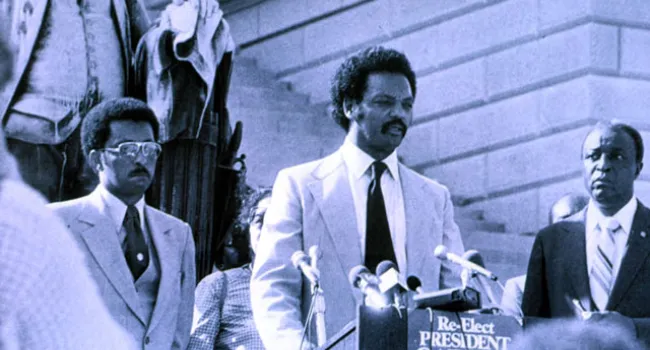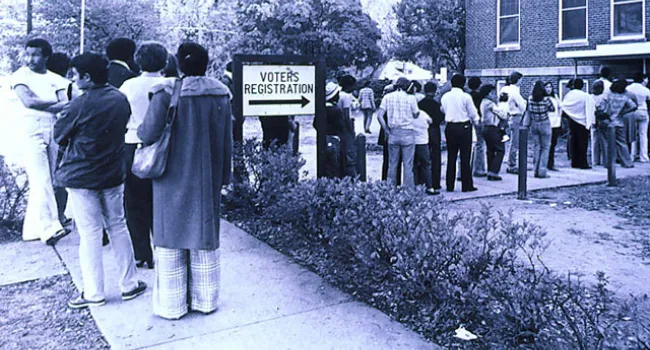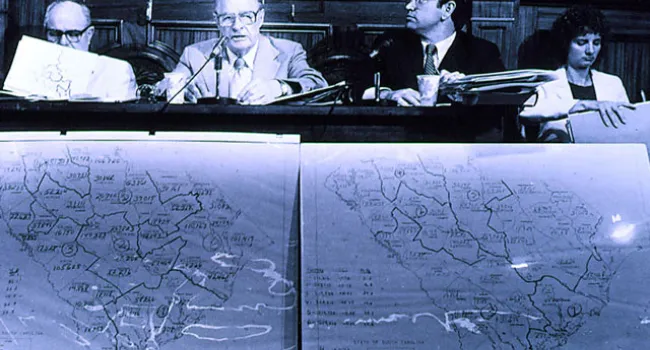
The congressional redistricting in 1981 led to the election of I. DeQuincey Newman as the first African-American South Carolina senator since the end of Reconstruction. Here, he greets some of his new Senate colleagues: William Doar (Democrat-Charleston), Heyward McDonald (Democrat-Columbia), and Horace Smith (Democrat-Spartanburg) in the background. November 8, 1983, photo by Jeff Amberg.
Courtesy of "The State" newspaper.
Standards
- 5.4.E Analyze multiple perspectives on the economic, political, and social effects of the Cold War, Space Race, and Civil Rights Movement using primary and secondary sources.
- This indicator was developed to promote inquiry into how the lifestyles of those living in capitalist countries differed from those living in communist countries. This indicator was also designed to promote inquiry into how the rights of citizens differed in capitalist and communist countries.
- This indicator was designed to foster inquiry into the role of South Carolina in the Modern Civil Rights Movement, to include the influence of court cases such as Briggs v. Elliot and Flemming v. South Carolina Electric and Gas. This indicator was also developed to promote inquiry into the relationship between national leadership, protests, and events and South Carolina leadership, protests and events, such as the Friendship Nine and the Orangeburg Massacre.







